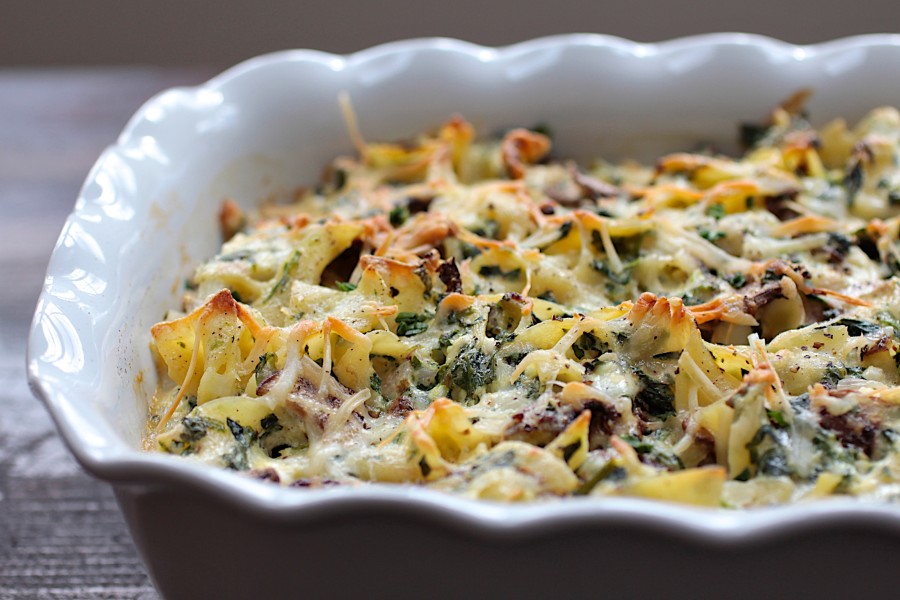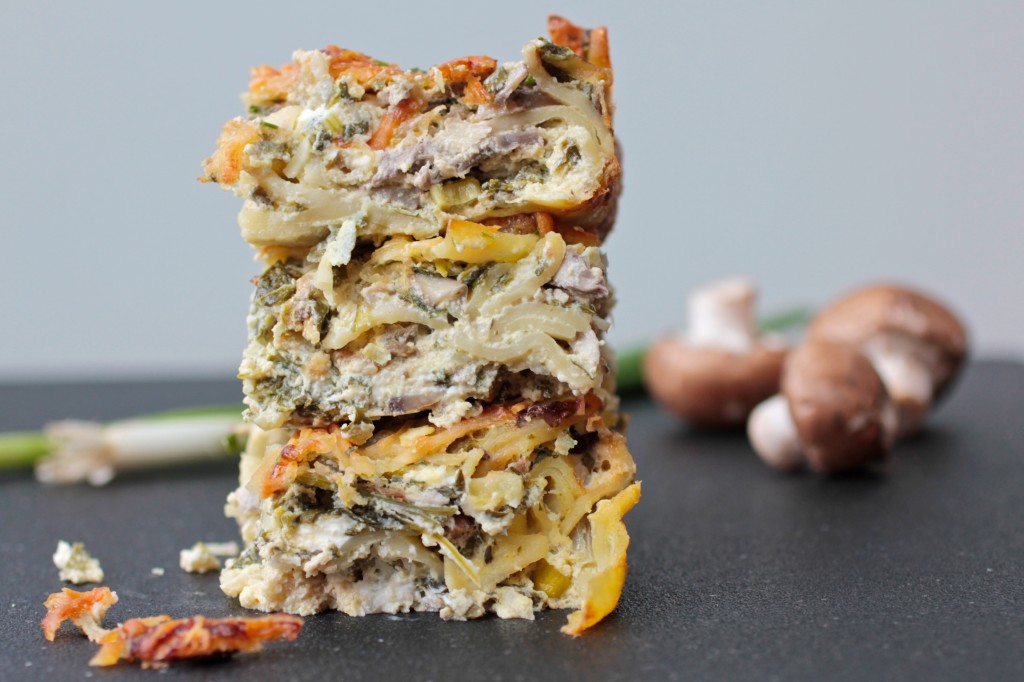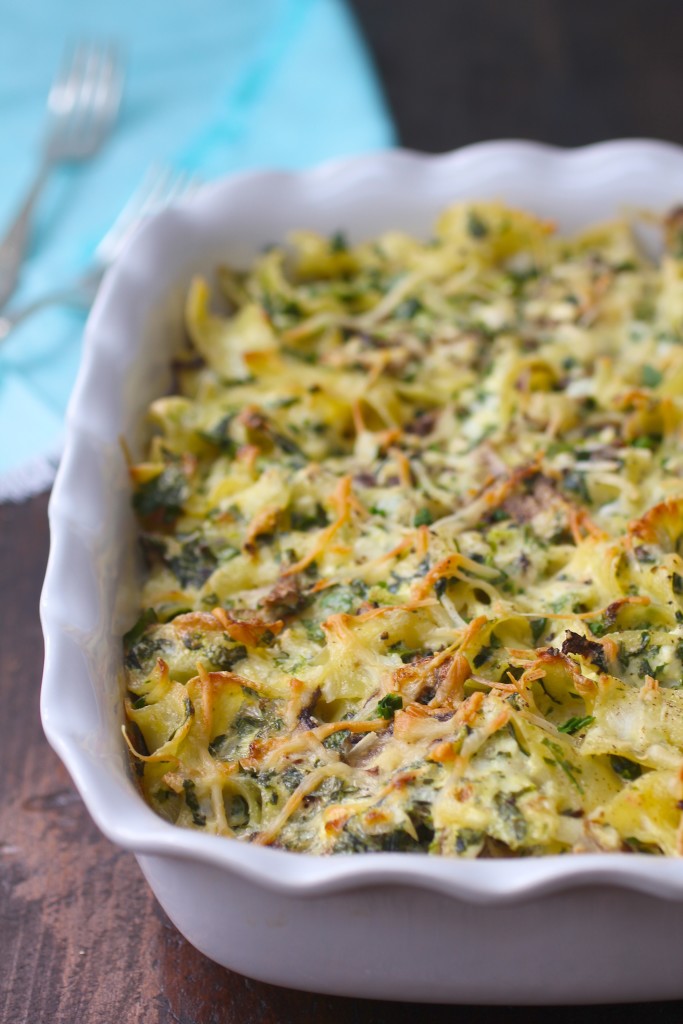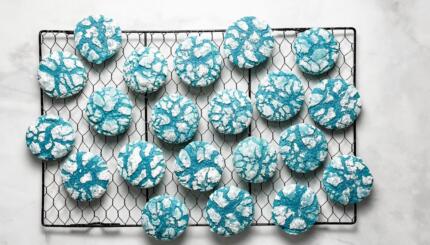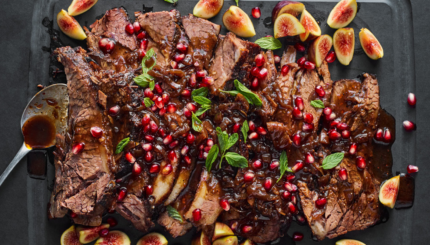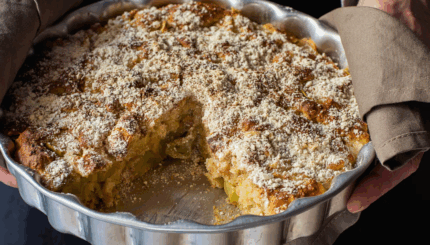Shavuot, the Festival of Weeks, marks the end of the seventh week counting of the Omer from the start of Passover. Its significance is really agricultural, according to Gil Marks in The Encyclopedia of Jewish Food. Marks explained that the holiday celebrates the beginning of the wheat harvest in Israel, and a time when first fruits of the season were brought to the Temple.
So what’s up with the kugels, blintzes and cheesecakes that we associate with Shavuot?
We commemorate the giving of the Torah at Mount Sinai on this date (seven weeks after the Israelites escaped Egypt) which makes this holiday of profound historical significance. Once the laws of kashrut (kosher) were given in the Torah, the Jews turned to dairy as a way to avoid the meats and utensils which were suddenly rendered treif (unclean).
But Marks goes a step further and shares another interesting legend that explains that when the Jews came back to their camp after receiving the Torah, “they found that their milk had soured and turned to cheese.” Lucky for us, we have a perfectly good excuse to eat an abundance of cheese and sour cream in cheesecakes, blintzes, knishes and kugels as we celebrate this joyful holiday.
The Nosher celebrates the traditions and recipes that have brought Jews together for centuries. Donate today to keep The Nosher's stories and recipes accessible to all.
This cheesy kugel is inspired by a traditional Eastern European sweet cheese lokshen kugel that many of us grew up eating. This super easy recipe migrated from community to community until it seemed that most of my Ashkenazi friends were eating the same sweet dairy kugel.
But my family prefers savory flavors so I’ve riffed on that kugel of my youth by eliminating any trace of sweet. I’ve layered umami flavors including two types of mushrooms and a parmesan crust. Any sharpness from scallions and shallots bakes into the cheesy batter resulting in a mellow and altogether different savory delight.
Ingredients
6 oz. wide egg noodles (2 cups dry measure)
6-8 dried porcini mushrooms, soaked in 3/4 cup room temp water. Reserve liquid.
4 oz. cremini mushrooms (or any mushroom without gills), wiped clean and thinly sliced
3-4 oz. clean organic spinach ( approximately half of a 6 ounce bag of store bought)
3 Tbsp flat leaf parsley, finely chopped
1 large shallot, finely chopped
3 scallions, white ends discarded, chop the rest
3 eggs, room temperature and beaten
4 Tbsp butter, melted and divided into half
8 oz. sour cream, full fat
8 oz. cottage cheese, 4 % fat
4 oz. cream cheese full fat (brick, not whipped), room temperature
1⁄2 tsp salt and pepper to taste
1 tsp lemon zest
1 1/3 - 1 1/2 cups shredded parmesan for topping
Directions
Butter pan well on bottom and side. Preheat oven to 350 degrees F.
Bring salted water (1⁄2 - 1 tsp salt) in medium size pot. Cook noodles according to instructions on package but be sure they are al dente. Drain, rinse in very cold water, shake excess water off and pat dry while in colander. Don’t worry if it looks like you don’t have enough noodles. You do.
After soaking dried mushrooms, remove from water and reserve liquid. Pat mushrooms dry and chop very well. They will measure approximately 2 packed tablespoons.
Pour the mushroom soaking liquid into a bowl or cup using a paper towel as a filter. Measure 1⁄4 cup of filtered mushroom water and put aside.
Salt the spinach (1⁄2 teaspoon will help it to maintain its bright green color) and steam in microwave for 4-5 minutes. Cool, pat dry, chop well. It will yield only a bit but that’s ok.
In a large mixing bowl, mix eggs, melted butter, sour cream, cottage cheese, cream cheese, liquid from mushroom soak, salt and pepper. Use a stiff whisk to be sure the cream cheese is broken up and integrated.
Add to bowl: Spinach, scallions, parsley, shallots, both kinds of mushrooms and lemon zest. Mix.
Gently stir in cooked pasta.
Pour mixture into prepared pan, distributing liquid and pasta as evenly as possible. Smooth the top.
Drizzle remaining melted butter over the top of kugel and dust with shredded parmesan.
Bake, uncovered, for 40-50 minutes until top is golden and tester comes out dry.
Cut into squares and serve warm. This kugel may be reheated in oven. Do not use microwave.
Ashkenazi
Pronounced: AHSH-ken-AH-zee, Origin: Hebrew, Jews of Central and Eastern European origin.
kugel
Prounounced: KOO-gull (oo as in book), Origin: Yiddish, traditional Ashkenazi casserole frequently made with egg noodles or potatoes.
